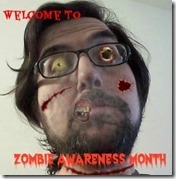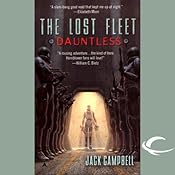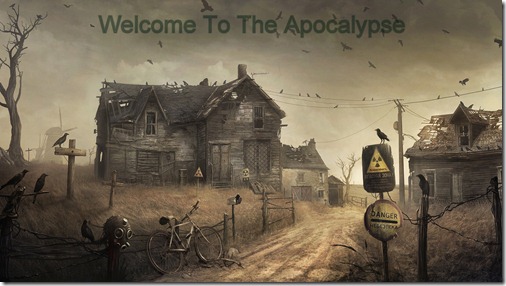2013 Zombie Awareness Month
Most people would agree that the majority of zombie novels are less about the masses of flesh eating reanimated corpses, and more about the people left behind having to deal with flesh eating reanimated corpses. Today I’ve asked Three authors from Permuted Press, one of the top publishers of Zombie and Apocalyptic Fiction, about those lone Survivors in the new dead world.
Today’s Participants are:
Derek J. Goodman, author of The Reanimation of Edward Schuett.
William Todd Rose, author of The Seven Habits of Highly Infective People.
Jessica Meigs, author of The Becoming Series.
What characteristics do you believe makes someone potentially more likely to survive a Zombie Apocalypse?
Derek J. Goodman - I think it’s tempting to assume that the number one characteristic someone would need in a ZA situation is survival training or skills, and I don’t really think that’s wrong, but most importantly I would say the key characteristic is adaptability. Someone would have to think on the fly, especially if the characteristics of zombies turned out to be different than everyone expected them to be. People would need to be able to expect the unexpected and then adjust accordingly on a moments notice. People who couldn’t accept what was happening or think they could stay their same static selves no matter the situation wouldn’t last long.
William Todd Rose: I think the most important characteristic is the indomitable will to survive. In this type of scenario, the majority of the people you’ve ever loved or cared about are dead; society has fallen and every day is a grim struggle for survival. The things you once took for granted — food, shelter, water, and such — are now as precious as rare gems once were. Continued existence would be bleak and grueling, so there would have to be something there, a little spark, which made you want to keep on going despite seemingly insurmountable odds.
Jessica Meigs: Despite the fact that I’ve loaded my books in the Becoming series down with main characters who have military or law enforcement experience, I’ve never really believed that those are fully necessary to survival in a zombie apocalypse scenario. To me, the best characteristics that anyone can have in the zombie apocalypse are adaptability; levelheadedness; a willingness to learn, listen to, and work with other people; and a drive and a reason to live. Regardless of what training you may have, I think if you’re missing any of those key elements, you drastically increase your chances of dying in the apocalypse.
As a consumer of Zombie entertainment do you prefer stories about characters that are well prepared for an apocalyptic event, like zombies, or characters that are ill prepared, yet manage to find some way to survive?
Derek J. Goodman: I don’t find much interesting in a story about a person who knows everything that’s coming, unless maybe you’re trying to play it up for laughs. Good drama comes, I think, when a character is put in a situation they weren’t ready for and you learn whether or not they have it in them to become more than they thought they were.
William Todd Rose: I personally like the ill-prepared characters. In one of my novels, The Dead & Dying, I actually contrasted these two types of characters in one of my protagonists, Carl. He was a character who’d always secretly wished for an undead apocalypse like he saw in the movies; he thought he had his contingency plan and knew exactly what to do. When it went down for real, however, he found that life doesn’t always imitate art; this man who thought he was prepared for the final days turned out to be just as unprepared as everyone else.
Jessica Meigs: I think of the two, I definitely prefer the latter. Most zombie stories I’ve read that involve the survivalist types who always predicted that zombies would come and are supposedly well prepared for such an event are the types of stories that read like Max Brooks’s Zombie Survival Guide: like a field guide rather than an interesting story about people. I’ve read so many stories, including a very popular series, that were highly reviewed and ranked, yet read like an instruction manual: "I did x, then I did y, then I did z, and I did it all in the following way…" And it seems to always work out perfectly for the main character because he followed steps x, y, and z and never doubted himself or encountered anything he couldn’t handle. To me, that is incredibly boring. There’s no cause and effect, no drama, no real crisis for the character, just rote step-by-step.
Considering the world we currently live in, where people are entertained by the notion of zombies but the general population has the idea that something like that would never actually happen, I think it’s much more realistic to have novels where the characters are ill prepared–because the majority of the general population wouldn’t be prepared for something like that. I think the shock and awe effect, the scramble as characters try to figure out what’s going on and what to do to in order to survive, make far more fascinating stories than the borderline step-by-steppers.
As a writer, how do you balance a character having the necessary skills to overcome the odds of zombie outbreak with creating true human responses to such an unbelievable event?
Derek J. Goodman: I’ve seen some writers that have a tendency to write characters that, when they are prepared and skilled and know what they need to do, that means the character is stoic and doesn’t get affected by the bad things going on around them. That’s fine at times, but personally I think it gets boring when you see it too often. Even if a character knows what they’re doing, I like to find something humanizing about them, maybe something that throws them off their game. The hardass likes puppies, the smile-less killing machine once lost a little sister and this situation reminds them of the car wreck that killed her, etc. There’s always a way to fit something like that in there and do it without making it feel forced.
William Todd Rose: A lot of my characters are flawed and damaged people. They’ve been changed by the things they’ve seen an experienced and, as such, have moments of weakness. Sometimes, they reach the end of their ropes: they don’t want to go on, they feel as if they reached as far into their reserves as they can. So it really goes back to my answer to the first question: they have to push through the shock, grief, and post-traumatic stress and continually get their shit together to keep on living.
Jessica Meigs: I think this is the point where I start referencing my books.
As I’ve said before, the ill-prepared storyline is something I favor more than any other. In my series, starting with the novel THE BECOMING, I use the character Cade Alton to show that, while you might have a skill set that would theoretically prepare you for such an event, that doesn’t negate any human responses you might have. In the first novel, I introduce Cade Alton, who is one of the series’ four major characters; Cade has a background that would, you’d think, prepare her to survive just about anything: she spent seven years in the IDF, training and performing as a sniper. However, just because she had a background that was thoroughly steeped in the military (and not only military, but in a country’s military service that allows women on the frontlines), that doesn’t prevent her from making what, in hindsight, are incredibly stupid, incredibly HUMAN mistakes. Indeed, when the Michaluk Virus reaches Memphis, Tennessee, and her infected boyfriend attacks her, Cade doesn’t jump into action and immediately fight back. She doesn’t utilize the skills she spent seven years learning immediately. Instead, she freezes. She panics. She goes into total reactionary, break-down mode until she’s FORCED to take control when her best friend cracks. She isn’t able to just whip out a pistol and shoot her boyfriend in the head, because it’s her BOYFRIEND. It’s someone she loves. The thought of killing him does not immediately cross her mind. This is, indeed, only human. At that point, Cade had never faced anything like a zombie in her life. No one had. So when she freezes up, it’s because she can’t process what she’s seeing: no one could. It’s only through the rest of the series that you see Cade come into her own and become a force to be reckoned with (especially in The Becoming: Under Siege, which is currently being written, and the untitled fifth and sixth books).
Ultimately, it’s a very careful balancing act to take a highly skilled character and keep them human. Some writers, I think, are seduced by the skill set of the character, and as a result, they tend to focus on those skills at the expense of human reaction and human emotion. I try my absolute best not to do this (though I have no doubt that, at some point, I’ve probably slipped up somewhere), because I find the human experience and human psychology to be by far the most fascinating part of apocalyptic stories.
While the humans tend to take center stage, in many novels zombies are more than just the catalyst for a human story, but characters themselves. We’ve seem novels from the Zombie point of view, Voodoo Zombies, Demon Zombies, Zombie Private Investigators and Zombie gangs. Are there any aspects of Zombies as characters that you wish were more explored? Conversely, are there any aspects about Zombies that you feel have been played out?
Derek J. Goodman – I would like to see more of an idea of zombie culture. Whether you keep them as fairly brainless or upgrade them and give them emotions, there has to be something in there that drives them, even if its just holdovers from when they were alive. I haven’t seen a whole lot of that out there yet and think some amazing things could be done with it. As for things I’m tired of, could we please get past the idea that the question of fast or slow zombies is important? Why are we still fixating on this? We can do so much with the concept of zombies yet we’re stuck on this endless debate about their speed. It’s played out. Let’s examine something else about them.
William Todd Rose: Personally, I love to read authors who do new and interesting things with their undead characters. There can be a lot of back and forth about what does or doesn’t constitute a zombie and, to me at least, those arguments get old very fast. As authors, we should be stretching our imaginations and trying to find new ways to look at the genre. Why would I want to limit my own creation by imposing someone else’s preconceived definitions upon them?
Jessica Meigs: I love, to some extent, the idea of a story from a zombie’s point of view. It’s why I have an entire chapter in The Becoming: Revelations from a character’s point of view as they go through the transformation from human to one of the infected.
However, I think that, barring some exceptions, the zombie point-of-view idea is something that should be used sparingly at the risk of overdoing it (especially after the popularity of Warm Bodies by Isaac Marion). There’s only so much a reader would be able to stand of graphic descriptions of a zombie eating flesh from the zombie’s point of view.
As for aspects about Zombies that have been played out…I think in zombie lit, the biggest thing that has been played out would probably be the J.L. Bourne-style novel or the Z.A. Recht-style novel: heavy on the military tactics, light on characterization. Bourne and Recht did it well, but they were also some of the first. Since then, I think, a lot of (not all of, just a lot) stories that take that same storytelling bent have done it to the point where it’s so overdone, it’s like reading the same novels over and over. It hardly ever changes. I think if you’re going to do something from that perspective, it’s time to bring something new to the table, because the whole of the Military Zombie Book style has been overdone.
All of your books feature unique characters that you not see in other examples of the Genre. If it was not for the zombies, or the events that put them where they are in your story, what kind of life do you thing your characters would have had?
Derek J. Goodman - With most of the characters in The Reanimation of Edward Schuett, since it takes place a whole generation after the Zombie Uprising, they probably wouldn’t exist. Rae especially, since she’s the daughter of two known zombie killers and they probably wouldn’t have met otherwise. Edward is the only one who could have gone on to a different life. I picture him having the so-called "average" life, watching his daughter grow up, probably losing his job when the factory where he works downsizes, starting up a moderately successful small business of his own, then going on to retire to a life of fishing and dying of a heart attack at some old age. That’s probably a life he would have much preferred than what he got.
William Todd Rose: Bosley Coughlin, my time travelling protagonist in The Seven Habits, would have continued on just as he always had, I think. The most important person in his existence would have continued to be himself and he would have eased his way through the rest of his life without ever knowing a true connection to another living soul. Would he have eventually given up his regime of drugs and the occult? Probably not. He would have continued to search for something he couldn’t quite define and yet simultaneously run away from it as well.
Jessica Meigs: This is such a hard question, because I have trouble thinking of my characters in that way. I’ve toyed with ideas like this in the past, but considering the circumstances I’ve stuck them in in the Becoming series, it’s hard to envision them outside of those circumstances. I’ll do my best, though, and focus on just the main four: Cade Alton, Ethan Bennett, Brandt Evans, and Remy Angellette.
I think Ethan and Cade would have both definitely stayed in the domestic, suburban-style lives that they were living (and enjoying) in Memphis at the beginning of THE BECOMING: living next door to each other, socializing, just generally enjoying their lives and having fun.
Brandt and Remy, though, are a little harder to figure out. Both of them were on downward spirals in their lives prior to Michaluk: indeed, when the virus broke out in Atlanta, Brandt was…well, I won’t say where he was physically, but emotionally he was in a difficult place. His child had died, his wife had left him, and he’d joined the military at twenty-six to get away from his life. But then several months before the Michaluk Virus broke out in Atlanta, his parents had died, and he was struggling to help his younger sister Olivia complete medical school at Emory. There was very little left in his life for HIM, and I can imagine that he’d probably have descended into alcoholism at the first available opportunity. He was, in summary, very much emotionally damaged. The apocalypse, I think, gave him purpose, especially after he’d met Cade.
As for Remy, well, I can definitely say that, if not for the zombies, she’d have ended up in jail. In fact, as we’ll come to see, on the day the virus hit her home city of New Orleans, she had just been arrested and was in a holding cell–and not for the first time. Her life was in a drastic downward spin; she almost compulsively did things that would get her in trouble and screw up her life. Even after the zombie outbreak, this didn’t stop. If anything, I think Remy displays some sociopathic tendencies (such as her single-minded pursuit of the infected to the point of recklessness) that are really going to come into play the further along the series goes. But I like to think that this makes her a much more interesting character because of it. 🙂
Thanks to our participants. Check out Permuted Press for more Apocalyptic, Horror and Zombie novels. You can click on the images above to find my reviews of these audiobooks.























































